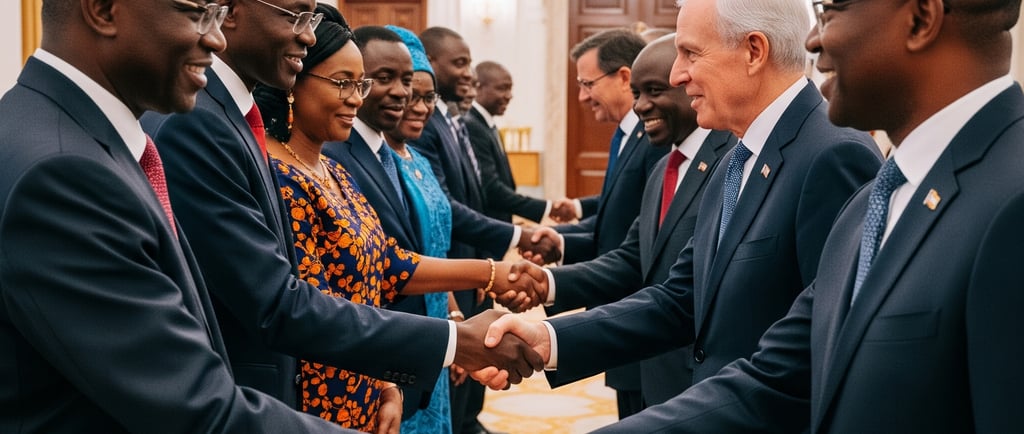Breaking Borders: What the U.S.–Africa Trade Agenda Means for African Businesses in 2025
USA
By Global Dropoff Logistics (GDL)
7/17/20252 min read


As Africa’s entrepreneurial landscape grows, more businesses are positioning themselves to scale internationally. One of the most pressing considerations in 2025 is how African companies can navigate the evolving U.S.–Africa Trade Agenda, especially with uncertainty surrounding key trade frameworks like the African Growth and Opportunity Act (AGOA).
For over two decades, AGOA has provided eligible African countries with duty-free access to the U.S. market. However, the current iteration of the act is set to expire in 2025, and discussions around its renewal are ongoing. While some stakeholders advocate for an extension, others suggest replacing AGOA with updated bilateral trade agreements or digital trade frameworks that better reflect today’s global economy.
As trade policy shifts, African businesses must become more proactive — not only to remain compliant but to seize new opportunities emerging in the U.S. market.
Five Trade Shifts African Exporters Should Watch
Whether a business exports agricultural products, fashion, cosmetics, or digital services, the changing trade landscape will affect how it operates. Here are five trends to watch:
1. Compliance Is Now a Competitive Advantage
U.S. buyers and regulators expect traceable sourcing, consistent quality, and clear documentation. Businesses must adapt their packaging, certifications, and shipping processes to meet higher compliance standards.
2. Stronger Partnerships Will Ease the Transition
Building relationships with U.S.-based importers, trade consultants, and compliance experts will help African businesses adapt more easily to evolving regulations and tariffs.
3. Digital Trade Is Rising
Trade is no longer limited to physical goods. Digital services — from fintech to e-commerce platforms — are part of the expanding trade dialogue. Businesses in the service sector have significant opportunities to connect with U.S. clients digitally.
4. AfCFTA as a Launchpad
The African Continental Free Trade Area (AfCFTA) gives businesses the chance to scale regionally before entering Western markets. Regional growth builds operational strength and international credibility.
5. Tariff Uncertainty Is Real
If AGOA is not renewed, tariffs could increase on key exports. It’s critical that businesses monitor trade updates from organizations like the U.S. Trade Representative or their country’s export promotion agency.
How Global Dropoff Logistics Supports African Exporters
As African businesses prepare for this shift, Global Dropoff Logistics (GDL) offers strategic support. The company provides professional packaging, documentation assistance, and logistics services tailored to international standards, helping clients meet U.S. import requirements while minimizing customs delays.
Whether a company is shipping textiles to Texas or skincare products to California, GDL ensures each shipment aligns with the expectations of international buyers and regulatory agencies.
A Turning Point, Not a Roadblock
While the future of AGOA remains uncertain, one thing is clear: African businesses that prepare strategically will be better positioned to thrive in a new trade era.
This moment is not about fear — it’s about readiness. Companies that stay informed, invest in compliance, and collaborate with experienced trade partners will lead the next wave of African global expansion.
For ongoing insights, Global Dropoff Logistics produces GDL’s Quick Drops — a podcast dedicated to breaking down trade strategies and global business tips for African entrepreneurs.
Africa is building beyond borders. The businesses that move with intention will shape the future of trade.
Written by Global Dropoff Logistics (GDL): Providing warehousing, logistics, and consultancy services to enhance bi-lateral trading between Africa and the diaspora.